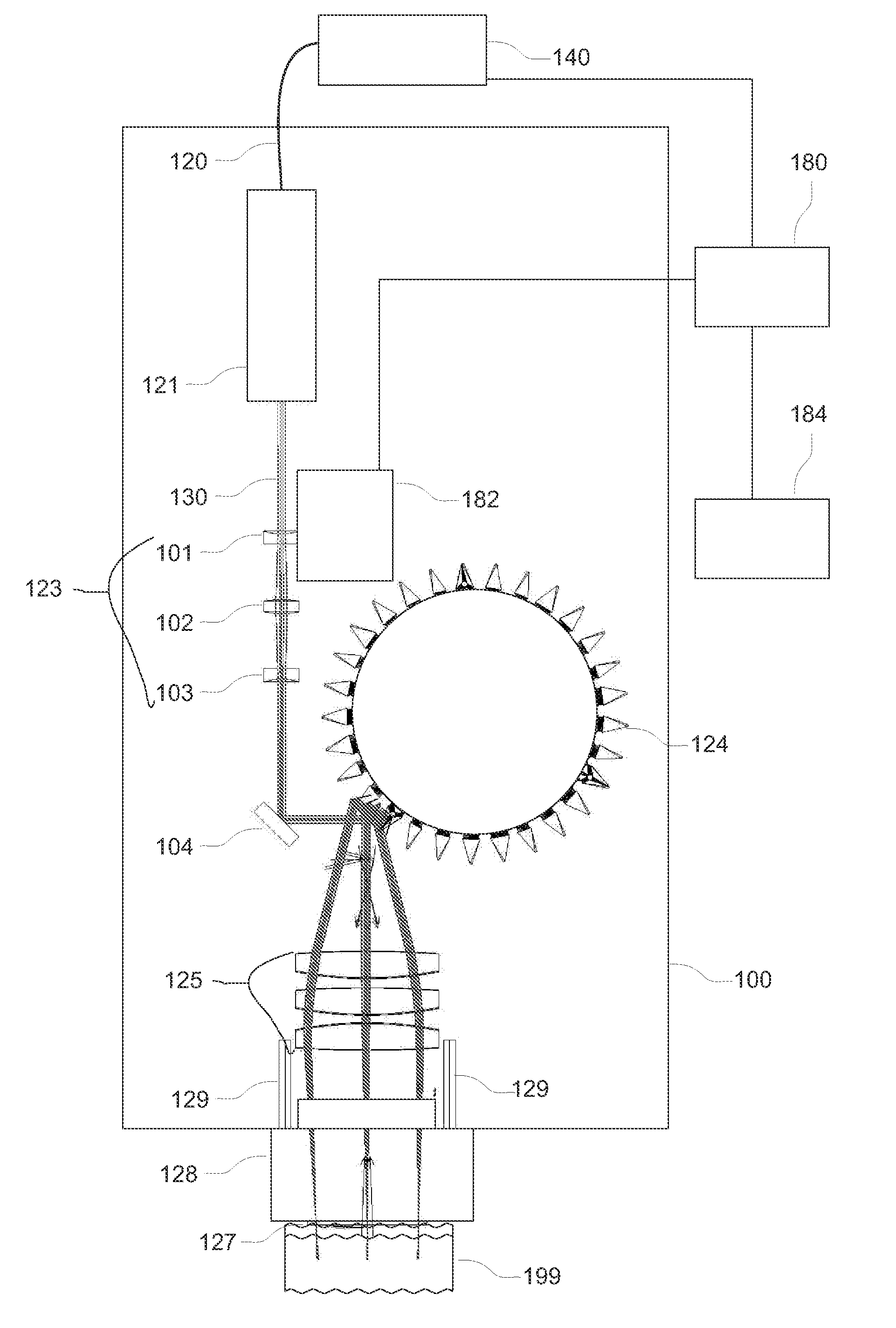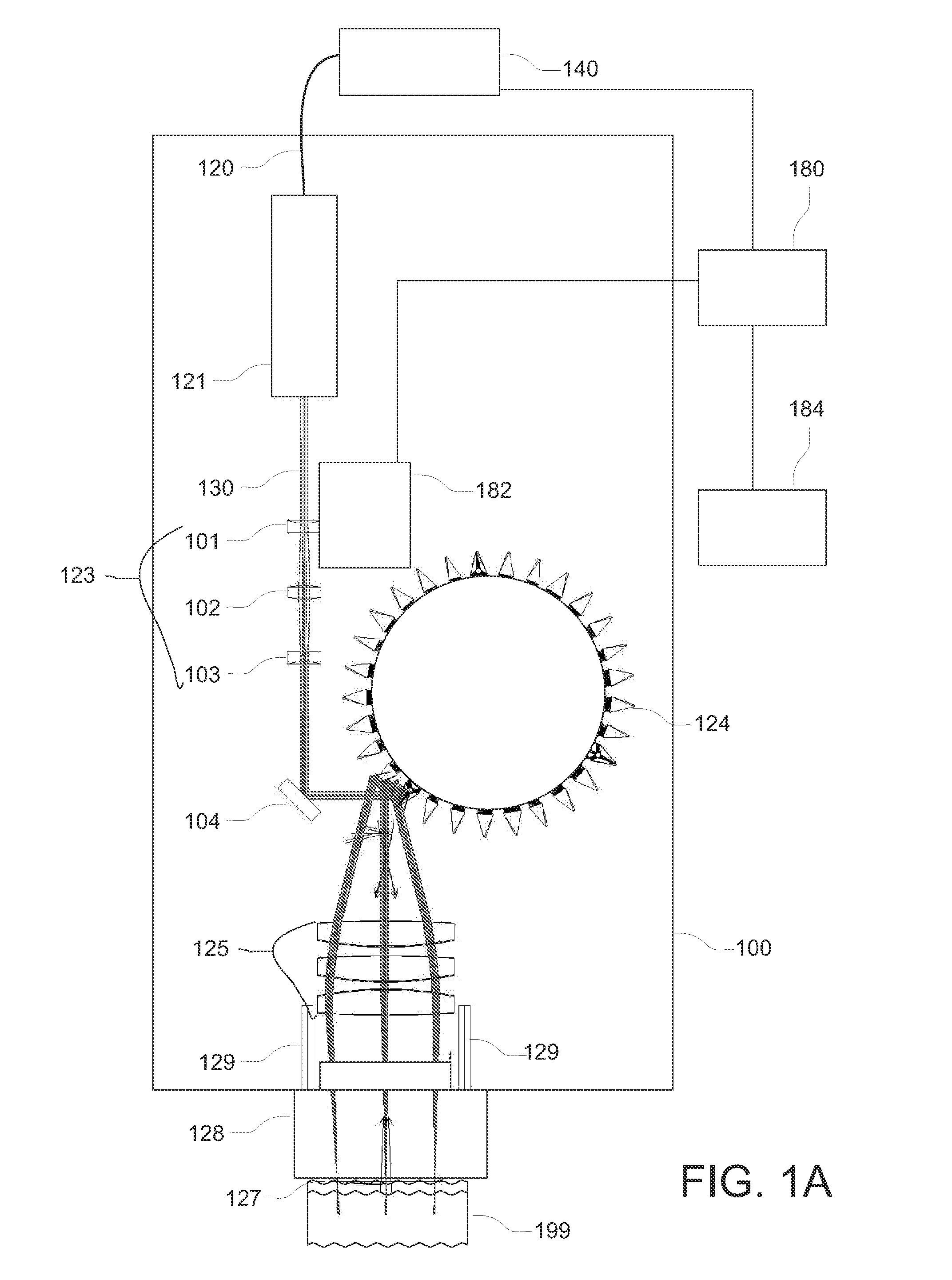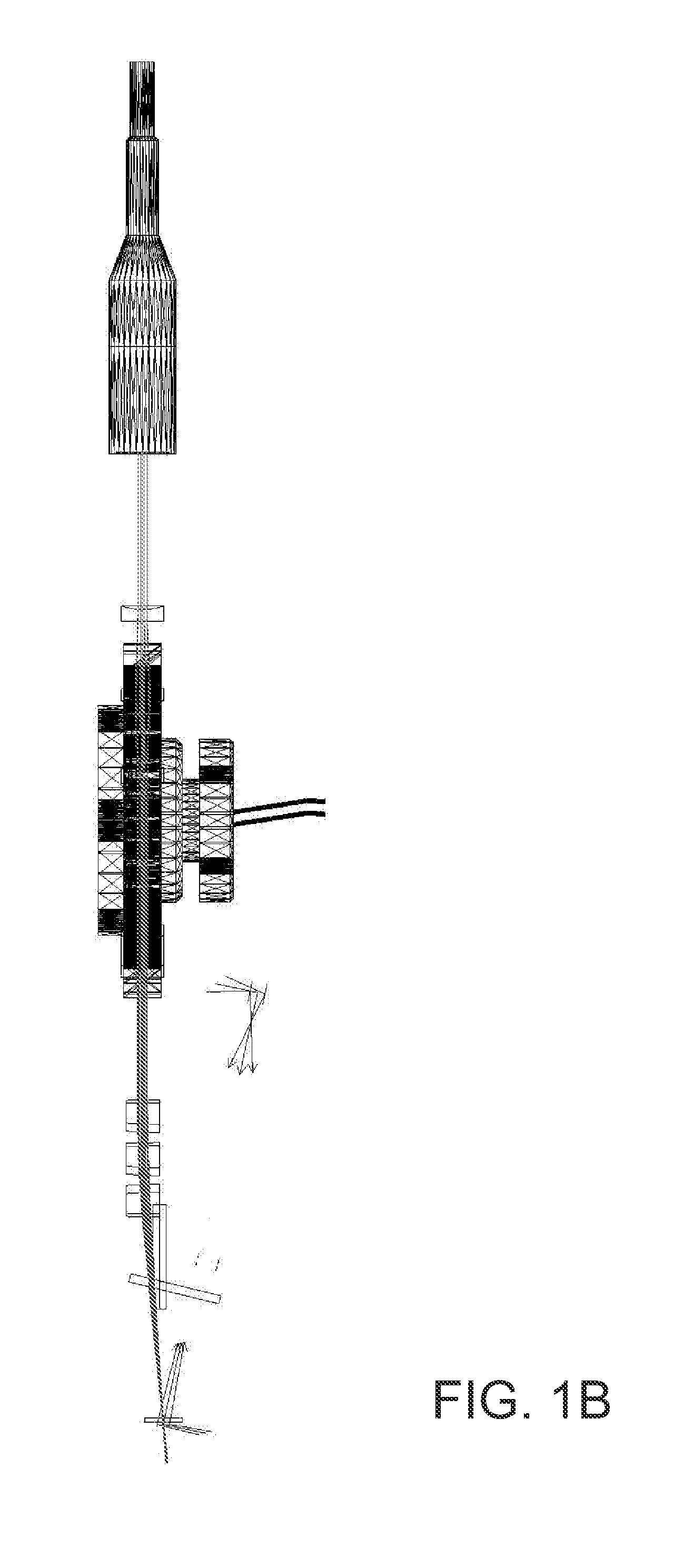Apparatus and Method for Adjustable Fractional Optical Dermatological Treatment
an optical dermatological treatment and fractional technology, applied in the field of apparatus and medical or surgical treatment using optical energy, can solve the problems of side effects, variations in the patient population or the treatment environment, affecting the amount of pain perceived by the patient, etc., and achieve the effect of further enhancing the system
- Summary
- Abstract
- Description
- Claims
- Application Information
AI Technical Summary
Benefits of technology
Problems solved by technology
Method used
Image
Examples
Embodiment Construction
[0036]A fractional treatment laser system that is switchable from a semi-ablative mode to a mode that is not semi-ablative for a preselected pulse energy can be created using an adjustable lens group and / or discretely interchangeable optical elements to adjust the optical beam numerical aperture or beam size at one or more epidermal layers. Such a laser system can be created by proper selection of laser beam parameters as described above.
[0037]To demonstrate such a device, treatment zones were created by directing a laser beam onto ex vivo human skin that had been excised during one or more plastic surgery operations. Optical spot size and focus depth into the tissue sample were adjusted by adjusting the focal position of a focused laser beam relative to the tissue surface. The skin was frozen for storage and later warmed to body temperature before being treated. To approximate in vivo treatment conditions, treatment of the ex vivo tissue was performed at approximately body temperat...
PUM
 Login to View More
Login to View More Abstract
Description
Claims
Application Information
 Login to View More
Login to View More - R&D
- Intellectual Property
- Life Sciences
- Materials
- Tech Scout
- Unparalleled Data Quality
- Higher Quality Content
- 60% Fewer Hallucinations
Browse by: Latest US Patents, China's latest patents, Technical Efficacy Thesaurus, Application Domain, Technology Topic, Popular Technical Reports.
© 2025 PatSnap. All rights reserved.Legal|Privacy policy|Modern Slavery Act Transparency Statement|Sitemap|About US| Contact US: help@patsnap.com



